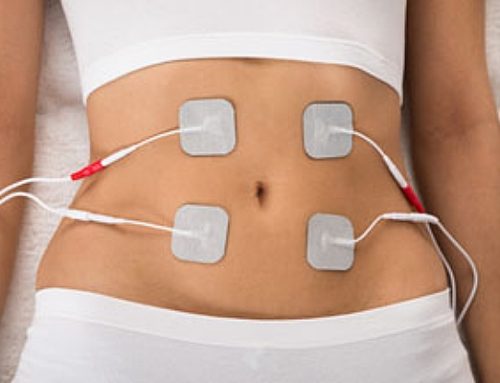If there is one food, supplement or folk remedy hyped with the longest list of supposed health benefits, including, “It burns fat too!” it’s got to be apple cider vinegar. If you did enough random Googling, and if you believed everything you read, it would seem like Apple Cider Vinegar is the ultimate cure-all!
The health and weight loss industries have certainly capitalized on all the buzz. Yes, it’s true – the supplement companies will even sell you apple cider vinegar pills! If that doesn’t work, they’ll sell you keto apple cider vinegar pills (It’s true – you can’t make this stuff up)
Almost everyone has a friend or relative that swears by apple cider vinegar. (Usually it’s aunt Marge). Of course, everyone also knows that a single testimonial is not proof and we don’t believe everything we read on the internet. But when there are anecdotes, ads and articles all over the place, it’s understandable why so much interest has been piqued.
Just remember, anecdote is the weakest form of evidence and ads are people trying to sell you stuff
What’s the truth about apple cider vinegar? The only way to cut through the noise is to ignore what Aunt Marge, Google, weight loss corporations and alternative health guru (quack) authors say and look straight to the science. Get out your baloney detection kit!
Many of the health claims, including weight loss, have been researched (I listed 46 scientific studies at the bottom of this page. Yep, vinegar might have a legitimate health benefit or two, but even those are iffy, and most of the claims have already been debunked by science. Many studies with apparently promising results were done on mice and rats. I’ll come back to all this in a minute, but first, what exactly is this stuff anyway?
What is apple cider vinegar?
Apple cider vinegar is, well, vinegar! It’s not all that different from the balsamic type you put in your salad dressing or the other vinegars used for flavoring, pickling and other cooking purposes.
The word vinegar comes from the French, “sour wine” and it’s produced by fermenting plant foods including rice, potatoes, whole grains or fruits. In the case of apple cider vinegar, it’s apples. (I’m not so keen on apple vinegar, but protein apple pie is ok with me).
In a two-step process, crushed or cubed apples or apple cider are exposed to yeast, which feeds on the sugars, turning them to alcohol. It’s then exposed to bacteria and oxygen which ferment the liquid further and turn it into acetic acid, forming vinegar.
The acetic acid is the main compound which gives vinegar the pungent flavor and smell. Apple cider vinegar contains as little as three calories per tablespoon and has only trace amounts of vitamins, amino acids and antioxidants. There’s not much else to it. It isn’t anything exotic like your stereotypical “fat burning berry from the Amazon Rain forest.” (Remember those scams? Acai you later!)
Apple Cider Vinegar And Weight Loss Claims
What does research say about this fermented juice of apples and weight loss? Not much. There were two mouse studies showing increases in fatty acid oxidation, but rodent studies don’t apply to humans. What’s more, fatty acid oxidation is not the same thing as weight loss. Studies on fatty acid oxidation are often short term and don’t even measure weight loss over time (regular readers of this blog know that already, of course).
There has only been one human study on apple cider vinegar and weight loss, but when you look closely, you see it isn’t very convincing.
It was a Japanese study published in 2009 where 175 overweight subjects, age 25 to 60, were divided into three test groups. For 12 weeks, each group consumed a beverage with either one tablespoon of vinegar, two tablespoons or no vinegar.
At the end of the study, both groups who consumed vinegar had (in a dose-dependent manner), a lower body weight, a lower body mass index, less visceral fat and a smaller waist measurement than the placebo group that didn’t consume any vinegar. It sounded great on the surface except for a couple of problems.
First, the weight loss was barely significant. The two vinegar groups lost only 1.2 kg to 1.9 kg, while the placebo group didn’t lose any weight. Most people who lose only three or four pounds in three months would not be too happy with those results.
I’m not sure if I find it more amusing or more infuriating that one of the top google results for apple cider vinegar pulls up an ad that says, “Drink apple cider vinegar – lose up to 27 pounds in 1 month!” If the headline said what the research really found, “Lose 1.2 kilograms in 3 months!” do you think it would sell?
Another problem with this lone human study is that we don’t know for sure if that weight loss can even be credited to the vinegar because calorie intake was not controlled. The subjects self-reported their food intake, which we know is notoriously inaccurate.
Furthermore, this vinegar for weight loss study was done in 2009, and no researchers have tried to replicate it in over a decade since. Why not? I’m not sure, but if I had to guess, it’s probably because, “why bother?” The only plausible mechanism is a reduction in appetite (more on that below).
I wouldn’t hold your breath waiting, but it would take much more research, with controlled randomized trials, to make any definite cause and effect claims about apple cider vinegar and weight loss.
Apple Cider Vinegar And Appetite / Satiety
Apple cider vinegar does not boost your metabolism, affect your hormones or do anything else that could explain weight loss, with only one possible exception. It might have a small appetite-suppressing effect.
A study in 2005 found that when vinegar was consumed in a meal that contained starch, there was a reduction in subsequent appetite.
In 2013, a small study with 16 subjects found the same thing, but there was a catch: It was true only because the vinegar caused nausea! This study gets quoted by companies pitching vinegar for weight loss, but ironically, the authors of the study came to this conclusion:
“On this basis (nausea), the promotion of vinegar as a natural appetite suppressant does not seem appropriate.”
For some reason, that quote from the scientific paper really cracked me up.
Another study found that vinegar could slow gastric emptying and that might explain the appetite suppression. Regardless of the reason for any potential increase in satiety or decrease in appetite, all of these studies show the same thing: the appetite-suppressing effect is very small. This is another reason why real scientists aren’t raving about vinegar and weight loss – not even for appetite control.
Since advocates like to share anecdotes about the “wonders” of vinegar, I thought it was only fair to share one about the nausea of vinegar: This comment was posted a while back in the Burn the Fat Inner Circle discussion forums:
“I was told to try apple cider vinegar from one of the trainers at my gym and I’ve been literally choking it down every morning for 2 weeks and had zero change for the positive. In fact, I gained weight. He told me that it would help with detox and weight loss. Now that I’ve read these posts on Tom’s site, it is going into the garbage. My mornings will be a lot better without going into convulsions gagging vinegar down.”

Apple Cider Vinegar And Blood Sugar
Dietician Carol Johnston has been studying the effects of vinegar and acetic acid for years and has published numerous studies on the subject. Like most scientists, she could see that research on vinegar and weight loss was limited and not very impressive. Where her research did suggest a benefit was in blood sugar (glycemic) control.
Rodent studies found that vinegars, including apple cider vinegar, had beneficial effects on blood glucose control. I know, rats, again. But in two human studies, consuming vinegar with a carbohydrate meal reduced blood glucose response by 20% to 30%.
Johnston’s studies suggested there might be a minor benefit for healthy subjects, but the groups that showed significant impact were prediabetic. It’s theorized that the acetic acid might slow down the absorption of the starch. That means the benefit would come only when you’re eating starchy carb meals. If you’re eating a protein and a salad, it wouldn’t matter. This has been noted with different types of vinegar, not just apple cider vinegar because it’s the acetic acid, not the vinegar variety that produces this result.
Although some studies support possible benefits for glycemic control, it’s interesting that after reviewing all this research, the Academy of Nutrition and Dietetics concluded,
“There is lack of evidence to recommend vinegar as an adjuvant treatment for diabetes.”
If the argument for vinegar is to lower glycemic response to a meal, it’s also important to note that the relevance of glycemic index for healthy people who are not diabetic has been strongly contested.
Even if this potential benefit of vinegar looks promising, if you’re diabetic, pre-diabetic or have concerns about blood sugar management, please get advice on treatment from your doctor, not the internet! If you’re going to start on your own, great – start with high protein, high fiber healthy food and exercise (lots of exercise – it’s great for glycemic control… and it’s free – those stupid pills are not).
Apple Cider Vinegar And Detoxification
The premise behind detox diets, foods or supplements is that toxins (whatever that vague word means) build up in the body and to get rid of them, some kind of special nutritional intervention is required.
The truth is, a healthy person with a healthy liver and kidneys is already detoxing the body and needs no extra help. What’s more, a recent research review in the Journal of Human Nutrition And Dietetics concluded that there was no evidence that apple cider vinegar or any other food removes toxins from the body, even if such toxins were there and accumulating.
To support claims for detox, first you have to name the toxin, specifically (for example mercury, or a particular persistent organic pollutant like organochlorines, and so on). Next you have to prove the toxin is in the body and in dangerous amounts. Then you have to prove the alleged treatment actually removes that toxin. If you ask a detox “guru” to answer these questions, you’ll probably hear nothing but crickets.
There have been no randomized controlled trials in humans showing that vinegar has any detoxifying properties and there is little scientific evidence supporting the concept of detox diets at all. Whether it’s apple cider vinegar, lemon water, or anything else, detox diets and supplements are all BS!

Apple Cider Vinegar Lowering Cholesterol and Cardiovascular Health
Some people claim that vinegar can improve cardiovascular health or reduce risk of death from cardiovascular disease. Almost all of the research however, has been on rodents! At least two studies on rats found that apple cider vinegar improved blood lipids. One rodent study showed a decrease in oxidative stress. Another rat study showed a reduction in systolic blood pressure. Human evidence is scarce.
One study from Harvard showed a correlation between the consumption of oil and vinegar salad dressings and reduction in mortality from cardiovascular disease in women. However, this study was observational so it can’t show cause and effect. In addition, the actual objective wasn’t to study vinegar, but to examine the effect of alpha-linolenic acid on the risk of fatal heart disease in women. Since the subjects consumed oil and vinegar salad dressings, it’s not clear where the association with lower mortality came from.
The conclusion was that higher consumption of foods such as oil-based salad dressings that provide polyunsaturated fats, including alpha-linolenic acid, may reduce the risk of fatal heart disease. They did mention that future studies are worth considering since vinegar might impact lipids indirectly by improving glucose control.
The Japanese weight loss study reported that the same groups that lost 1 to 2 kg when consuming vinegar also saw a decrease in triglycerides. However, a study published several years later (2013) in the World Journal of Cardiovascular Disease did not. In a randomized double blind trial on diabetic subjects, the researchers found no evidence to support the use of vinegar for management of low HDL-C, elevated triglycerides or LDL-C.
There is too little evidence to say that vinegar, by itself, improves cardiovascular health or reduces cardiovascular disease risk.
Apple Cider Vinegar And Other Health Claims
Acid reflux/GERD: No published research, only one small human study for a thesis. Concluded “compared to the placebo trial, the vinegar trials do not show signification alleviation of the heartburn sensation.”
Antibacterial: Vinegar has been used as a food preservative because it may kill certain bacteria. (No one said vinegar isn’t good for pickling and preserving). It does’t kill all pathogens however.
Arthritis: No human evidence.
Allergies: One human study, with only 7 subjects. More research needed.
Cure common cold or sore throat: Not studied in humans. Incredibly ironically, the acidity of drinking ACV straight could irritate your throat. A case study reported esophagus injury from apple cider vinegar supplements (another one that gave me a good chuckle, not that I’d ever wish esophagus pain on anyone… well, except maybe the charlatans selling this crap… maybe it would make them shut up).
Digestive aid: No human evidence, but it may slow gastric emptying. Animal study showing reduced inflammation in colitis, improved gut bacteria populations.
Energy booster: no evidence
Immunity: never studied in humans, but it was studied in shrimp.
Inflammation: In one animal study large vinegar doses reduced inflammation: no human evidence
Osteoporosis prevention: no evidence.
Oral health (whiten teeth and remove bad breath): One study showing it can clean dentures. Some evidence warning that it can damage tooth enamel. (An ironic lol, again).
Ph Balance (alkalize you): Has been disproven in human studies. No dietary interventions have an effect on blood pH in people with healthy kidney function. No evidence supports this claim for vinegar. Ph diets in general are BS!
Polycystic Ovary Syndrome (PCOS): One study showing 4 of 7 women regained menstrual cycle – assumed to be related to improvement in insulin resistance. More research needed before making any definitive claims about PCOS or fertility.
Skin (Wound healing, wrinkle removal, mole removal, dark spot removal): No evidence. But there are case studies of chemical burns from prolonged vinegar exposure.
Being that apple cider vinegar is the Internet’s favorite home remedy, this list could actually go on to the point that it gets ridiculous. (Some people really believe it’s a cure-all, literally). I’ll stop here and wrap it up.
Final Conclusions and Advice:
Bottom line – apple cider vinegar is unlikely to help you lose weight. If perchance it did, the benefit would be so small it would be impossible to tell if it was the vinegar or something else.
However, there are hardly any calories in vinegars, and they may have blood sugar control benefits, at least in some populations.
The Mediterranean diet is well known for including balsamic vinegar in salad dressings and it is one of the few dietary patterns in world that gets consistent thumbs up for health. In the Mediterranean tradition, it has been common to have a salad with an oil and vinegar dressing, and then after that, eat a meal with starch like bread or pasta. Based on some of the research, including a vinegar dressing on your pre-meal salads might be a healthy practice.
But it doesn’t appear that apple cider vinegar is anything special as far as vinegar varieties go. If you have some uses for different vinegars in cooking or in salad dressings and so on, it won’t hurt your health (if you don’t chug it straight from the bottle in humongous amounts), and it might help. Plus, that’s one purpose it’s designed for in the first place – flavoring foods.
I use balsamic vinegar in my salad dressings and sometimes white or red wine vinegar in some of my recipes, but to me, it’s just food. I’ve never even considered it a fat loss aid and while I do look at certain foods as “healthy” I certainly don’t see vinegar as a cure all.
I eat broccoli because it’s healthy, it fits well in a fat loss diet, and I recommend it, but I’m not selling broccoli pills or writing a broccoli diet book. It’s just food. As a Popular Science article said about vinegar,
“Apple cider vinegar is essentially just half of an excellent salad dressing.”
Also remember, there have been adverse effects reported from consuming vinegar. Misuse can harm your teeth, your esophagus and your stomach. (Seriously, some poor saps chug this stuff straight out of the bottle). Use it in food or for cooking, or if you insist on drinking it straight (but why, oh why?), dilute it.
And forget the pills, especially if they are advertised for weight loss. Don’t give your money to unscrupulous supplement or health companies making false claims. Claims like “Lose 27 pounds in 1 month” are such blatant lies, they should be illegal. (Actually, they are illegal – ask the FTC). Think about the ridiculous cost of supplements and weight loss potions too.
That reminds me of cinnamon. Cinnamon also has research suggesting benefits for blood sugar control. Not surprisingly, the supplement industry put it in a pill. I saw a cinnamon extract supplement (capsules) and the retail price was $20.40 a bottle. The shop rite cinnamon I buy to sprinkle in my morning oats: $1.99. I love my $1.99 cinnamon in my oatmeal.
Unless some convincing new research comes out, I would not give apple cider vinegar any consideration as a weight loss aid. Even if there’s some tiny benefit, chasing after weight loss potions, pills, powders, tricks and hacks is nothing more than a distraction that takes your mind off what really matters. Plus, once you start looking for one magic potion, chances are you’ll keep wasting time and money getting sidetracked looking for other “shortcuts.”
For fat loss, focus on priorities that matter:
1. First, make sure you have calorie deficit.
2. Second make sure you have adequate protein intake. And remember, even if you believe in the limited evidence that vinegar has an appetite reduction benefit, there is no better natural appetite suppressant and satiety inducer than protein. If you’re short on protein, you’re better off starting there.
3. Third, be sure the majority of your calories come from unprocessed, nutrient-dense, fiber-rich foods that you enjoy.
Last but not least, while there’s some evidence for vinegar helping regulate blood glucose levels, one of the best ways to achieve glycemic control is, guess what? Exercise! Especially weight lifting. If you want a magic pill, there you have it – the iron pill… pumping iron.
Tom Venuto, author of:
Burn The Fat Feed The Muscle
IS FAT LOSS YOUR #1 GOAL? Burn the Fat, Feed the Muscle is the classic “bible of fat loss,” based on the tested, proven methods of bodybuilders and fitness models. The new edition is now available not only in hardcover, but also in audiobook here: https://amzn.to/2pCG7lX
Scientific References:
WEIGHT LOSS
Kondo, T., et al., Vinegar intake reduces body weight, body fat mass, and serum triglyceride levels in obese Japanese subjects. Biosci Biotechnol Biochem, 2009. 73(8): p. 1837-43.
Kondo, T., et al., Acetic acid up-regulates the expression of genes for fatty acid oxidation enzymes in liver to suppress body fat accumulation. J Agric Food Chem, 2009. 57(13): p. 5982-6. (rodent study)
Fushimi, T. and Y. Sato, Effect of acetic acid feeding on the circadian changes in glycogen and metabolites of glucose and lipid in liver and skeletal muscle of rats. Br J Nutr, 2005. 94(5): p. 714-9. (rodent study)
Kohn, J.B., Is vinegar an effective treatment for glycemic control or weight loss? J Acad Nutr Diet, 2015. 115(7): p. 1188.
APPETITE/SATIETY
Darzi, J., Frost, G.S., Montaser, R., Yap, J., and Robertson, M.D. Influence of the tolerability of vinegar as an oral source of short-chain fatty acids on appetite control and food intake. Int J Obes (Lond). 2014; 38: 675-681 (vinegar suppressed appetite because of nausea).
Hlebowicz, J., et al., Effect of apple cider vinegar on delayed gastric emptying in patients with type 1 diabetes mellitus: a pilot study. BMC Gastroenterol, 2007. 7: p. 46. (vinegar might delay gastric emptying).
Ostman, E., et al., Vinegar supplementation lowers glucose and insulin responses and increases satiety after a bread meal in healthy subjects. Eur J Clin Nutr, 2005. 59(9): p. 983-8. (vinegar suppressed appetite)
BLOOD GLUCOSE CONTROL
Brighenti, F., et al., Effect of neutralized and native vinegar on blood glucose and acetate responses to a mixed meal in healthy subjects. Eur J Clin Nutr, 1995. 49(4): p. 242-7. (vingear reduced blood glucose response in humans 20-30%)
Johnston, C.S., Steplewska, I., Long, C.A., Harris, L.N., and Ryals, R.H. Examination of the antiglycemic properties of vinegar in healthy adults. Ann Nutr Metab. 2010; 56: 74-79
Johnston, C.S., et al., Examination of the antiglycemic properties of vinegar in healthy adults. Ann Nutr Metab, 2010. 56(1): p. 74-9.
Johnston, C.S., Quagliano, S., and White, S. Vinegar ingestion at mealtime reduced fasting blood glucose concentrations in healthy adults at risk for type 2 diabetes. J Funct Foods. 2013; 5: 2007-2011
Johnston, C.S. and C.A. Gaas, Vinegar: medicinal uses and antiglycemic effect. MedGenMed, 2006. 8(2): p. 61.
Johnston, C.S., C.M. Kim, and A.J. Buller, Vinegar improves insulin sensitivity to a high-carbohydrate meal in subjects with insulin resistance or type 2 diabetes. Diabetes Care, 2004. 27(1): p. 281-2.
Johnston, C.S. and A.J. Buller, Vinegar and peanut products as complementary foods to reduce postprandial glycemia. J Am Diet Assoc, 2005. 105(12): p. 1939-42.
Liatis, S, et al. Vinegar reduces postprandial hyperglycaemia in patients with type II diabetes when added to a high, but not to a low, glycaemic index meal. Eur J Clin Nutr. 2010; 64: 727–732
Leeman M, et al, Vinegar dressing and cold storage of potatoes lowers postprandial glycaemic and insulinaemic responses in healthy subjects. Eur J Clin Nutr. 2005 Nov;59(11):1266-71.
Liljeberg, H. and I. Bjorck, Delayed gastric emptying rate may explain improved glycaemia in healthy subjects to a starchy meal with added vinegar. Eur J Clin Nutr, 1998. 52(5): p. 368-71.
Petsiou, E.I., et al, Effect and mechanisms of action of vinegar on glucose metabolism, lipid profile, and body weight. Nutr Rev. 2014; 72: 651–661
Salbe, A.D., et al., Vinegar lacks antiglycemic action on enteral carbohydrate absorption in human subjects. Nutr Res, 2009. 29(12): p. 846-9.
Sakakibara, S., et al., Acetic acid activates hepatic AMPK and reduces hyperglycemia in diabetic KK-A(y) mice. Biochem Biophys Res Commun, 2006. 344(2): p. 597-604.
Raben, A., Should obese patients be counselled to follow a low-glycaemic index diet? No. Obes Rev, 2002. 3(4): p. 245-56.
White, A.M. and C.S. Johnston, Vinegar ingestion at bedtime moderates waking glucose concentrations in adults with well-controlled type 2 diabetes. Diabetes Care, 2007. 30(11): p. 2814-5.
DETOX
Klein, A.V. et al, Detox diets for toxin elimination and weight management: a critical review of the evidence. J Hum Nutr Diet, 2015. 28(6): p. 675-86
PH BALANCE
Bonjour, J.P., Nutritional disturbance in acid-base balance and osteoporosis: a hypothesis that disregards the essential homeostatic role of the kidney. Br J Nutr, 2013. 110(7): p. 1168-77.
CARDIOVASCULAR DISEASE
Budak, N.H., et al., Effects of apple cider vinegars produced with different techniques on blood lipids in high-cholesterol-fed rats. J Agric Food Chem, 2011. 59(12): p. 6638-44.
Chou, C.H., et al., Amino acid, mineral, and polyphenolic profiles of black vinegar, and its lipid lowering and antioxidant effects in vivo. Food Chem, 2015. 168: p. 63-9.
Hu, F.B., et al., Dietary intake of alpha-linolenic acid and risk of fatal ischemic heart disease among women. Am J Clin Nutr, 1999. 69(5): p. 890-7.
Fushimi, T. and Y. Sato, Effect of acetic acid feeding on the circadian changes in glycogen and metabolites of glucose and lipid in liver and skeletal muscle of rats. Br J Nutr, 2005. 94(5): p. 714-9.
Johnston, C.S., et al, Preliminary evidence that regular vinegar ingestion favorably influences hemoglobin A1c values in individuals with type 2 diabetes mellitus. Diabetes Res Clin Pract, 2009. 84(2): p. e15-7.
Kondo, T., et al., Acetic acid upregulates the expression of genes for fatty acid oxidation enzymes in liver to suppress body fat accumulation. J Agric Food Chem, 2009. 57(13): p. 5982-6.
Kondo, S., et al., Antihypertensive effects of acetic acid and vinegar on spontaneously hypertensive rats. Biosci Biotechnol Biochem, 2001. 65(12): p. 2690-4.
Naziroglu, M., et al., Apple cider vinegar modulates serum lipid profile, erythrocyte, kidney, and liver membrane oxidative stress in ovariectomized mice fed high cholesterol. J Membr Biol, 2014. 247(8): p. 667-73.
Panetta, C.J., et al, Prospective randomized clinical trial evaluating the impact of vinegar on lipids in non-diabetics. World Journal of Cardiovascular Diseases, 2013. 3(2): p. 191-196.
Shishehbor, F., et al., Apple cider vinegar attenuates lipid profile in normal and diabetic rats. Pak J Biol Sci, 2008. 11(23): p. 2634-8.
ANTIBACTERIAL, ANTIGUNFAL, ANTIMICROBIAL
Entani, E., et al., Antibacterial action of vinegar against food-borne pathogenic bacteria including Escherichia coli O157:H7. J Food Prot, 1998. 61(8): p. 953-9.
Mota, A.C., et al., Antifungal Activity of Apple Cider Vinegar on Candida Species Involved in Denture Stomatitis. J Prosthodont, 2015. 24(4): p. 296-302.
Park, SY et al, Antimicrobial effects of vinegar against norovirus and Escherichia coli in the traditional Korean vinegared green laver (Enteromorpha intestinalis) salad during refrigerated storage. Int J Food Microbiol. 2016 Dec 5;238:208-214.
Rutala, W.A., et al., Antimicrobial activity of home disinfectants and natural products against potential human pathogens. Infect Control Hosp Epidemiol, 2000. 21(1): p. 33-8.
Yagnik, D, Antimicrobial activity of apple cider vinegar against Escherichia coli, Staphylococcus aureus and Candida albicans; downregulating cytokine and microbial protein expression, Sci Rep. 2018; 8: 1732. 2018
IMMUNITY
Pourmozaffar, S, et al, Dietary effect of apple cider vinegar and propionic acid on immune related transcriptional responses and growth performance in white shrimp, Litopenaeus vannamei. Fish Shellfish Immunol, 2017. 60: p. 65-71.
ALLERGIES
Armentia, A., et al., Vinegar decreases allergenic response in lentil and egg food allergy. Allergol Immunopathol (Madr), 2010. 38(2): p. 74-7.
DIGESTION / INFLAMMATION
Shen, F., et al., Vinegar Treatment Prevents the Development of Murine Experimental Colitis via Inhibition of Inflammation and Apoptosis. J Agric Food Chem, 2016. 64(5): p. 1111-21.
FERTILITY
Wu, D., et al., Intake of vinegar beverage is associated with restoration of ovulatory function in women with polycystic ovary syndrome. Tohoku J Exp Med, 2013. 230(1): p. 17-23.
ADVERSE EFFECTS
Feldstein, S., M. Afshar, and A.C. Krakowski, Chemical Burn from Vinegar Following an Internet-based Protocol for Self-removal of Nevi. J Clin Aesthet Dermatol, 2015. 8(6): p. 50.
Bunick, C.G., et al., Chemical burn from topical apple cider vinegar. J Am Acad Dermatol, 2012. 67(4): p. e143-4.
Willershausen, I., et al., In vitro study on dental erosion caused by different vinegar varieties using an electron microprobe. Clin Lab, 2014. 60(5): p. 783-90.
Hill, L.L., et al., Esophageal injury by apple cider vinegar tablets and subsequent evaluation of products. J Am Diet Assoc, 2005. 105(7): p. 1141-4.






Proponents of apple cider vinegar claim that it has numerous health benefits and that drinking a small amount or taking a supplement before meals helps curb appetite and burn fat. However, there’s little scientific support for these claims. Studies of apple cider vinegar for weight loss have not consistently shown significant and sustainable weight loss across diverse groups of people.
I work with a woman who has fallen for the hype about ACV. She sips a huge container of water every day… and is starting to have issues with her teeth. I have warned her about this, but to no avail.